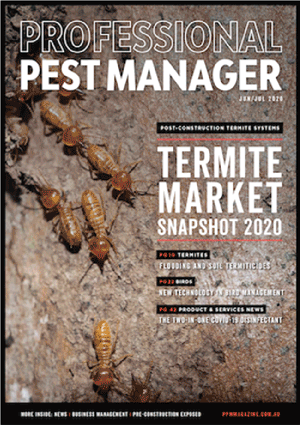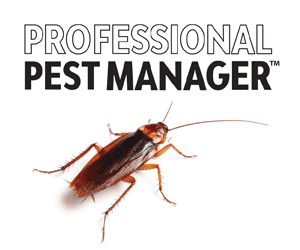Selling your business should be regarded the same as selling your home, advises Andrew Usher of Catand Advisory. With many factors to consider, it pays to seek professional, expert advice.
Anyone looking to sell their pest management business will have a figure in mind when beginning the selling process. But, in reality, a business is only worth what someone is willing to pay for it. So how much is your business worth? The answer is, ‘it depends’.
There are many aspects to consider when selling a business, all of which influence the price and terms of the sale. In the first instance, anyone looking to sell their business must understand exactly what it is that they are selling. Is it an ongoing business with an established customer list? Are there staff to consider? What do you as the owner want to do after the sale? And, how much value do you bring to the business?
Sellers also need to be clear on why they are selling their business. A buyer will want to know this as it is a key factor in whether they will want to engage with you or not.
A seller may have a timeframe in mind, be it within six months or maybe a year. However, an immediate sale is an unrealistic expectation as most acquisitions will take three to six months to complete in the best case scenario, so forward planning for the sale is key.
It is also important to have a view on who you would and would not like to sell the business to. Do you want to sell to the highest bidder? Do you want to target a purchaser with a good cultural fit? Or are you looking to sell to a colleague, family member or friend? Is it important to you to retain your brand? This is where the issue of legacy comes into play.
A business owner understandably has a personal interest in their business, and from my experience, will usually feel very proud of its success. It is natural to want that legacy to continue and also to ensure that staff are well looked after. However, unless a seller truly knows the buyer’s intentions or strategy, there is no way of knowing what they will do with the business once acquired. This is very important to understand and accept.
When assessing what a business is worth, a buyer will look at a number of factors, all of which are important. In my professional opinion, none is as significant as financial performance. A high level of comfort is offered to a buyer when a potential investment has shown strong financial performance over at least three years. The financials presented must exclude any private or non-business expenditure or other non-recurring costs, which ensures that the buyer will see the business at its full financial potential.
Other factors influencing the sale price are:
- The business’s reputation in the industry
- Contracted versus one-off jobs
- Termite versus general pest work
- Pricing of services
- Staff longevity
- Quality of operational data
- Customer lists
- Unique service offerings
- Location(s)
- The business owner’s willingness to assist in the transition of ownership and/or assisting the acquirer in growing the business.
In order to achieve the maximum value for a business it is essential to determine its current and future value. Engaging an independent advisor is the first step towards calculating this value.
It is also important to remember that each potential buyer will have a different motive for purchasing the business. For example, an overseas buyer showing interest from across the globe may be looking to establish themselves in Australia or simply looking for a return on their investment, either as a cash flow or profit return. Whereas a local buyer may be looking to expand their operations or grow geographically. An independent advisor can help clarify a buyer’s intentions.
In preparing your business for sale it is important to consider who you intend to present the business to. Just placing an ad is a bit ‘hit and hope’. Making a direct approach to potential buyers often delivers the best results. Maybe you want to target the big three or four pest control players in Australia? But approaching big businesses can be daunting and you may not have the contact details of the key decision-makers. This is where an advisor can add further value. Catand Advisory not only knows the key contacts, but we have met with potential investor groups who are very interested in the pest industry. We know the right people to talk to!
When considering whether to engage an advisor to assist with the sale of your business, compare this with selling a house. The homeowner would certainly tidy up the garden, paint what needs to be painted, fix what needs to be fixed – the simple things. But the homeowner would engage a real estate agent to advise on the sale, market the property, use their contact list of potential buyers to identify a purchaser and negotiate the best deal. There is no difference in selling a business – an independent advisor will take the stress out of the process and use their expertise to deliver the best result.
At Catand Advisory we help business owners better prepare for the sale of their businesses by accurately calculating the value of their operation. We present businesses in the right manner, ensuring that we create the right level of interest among potential buyers. Being able to present a business to not just one, but many potential buyers, leads to increased competition that can ultimately drive up the value of the business. This strategy ensures that the pest manager will achieve the best possible price for the business they have worked so hard to build.
Seeking advice from an independent advisor is the first step for any pest manager looking to successfully sell their business.
Andrew Usher, Director, Catand Advisory



